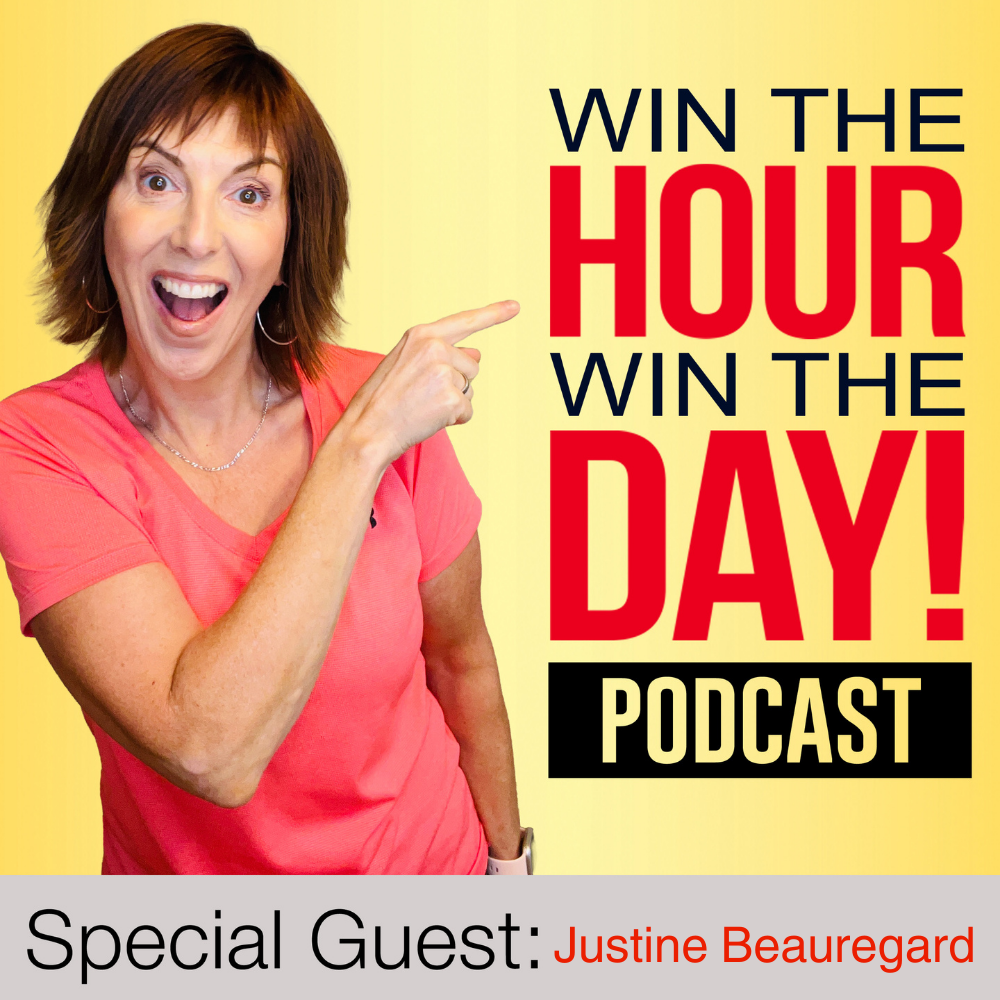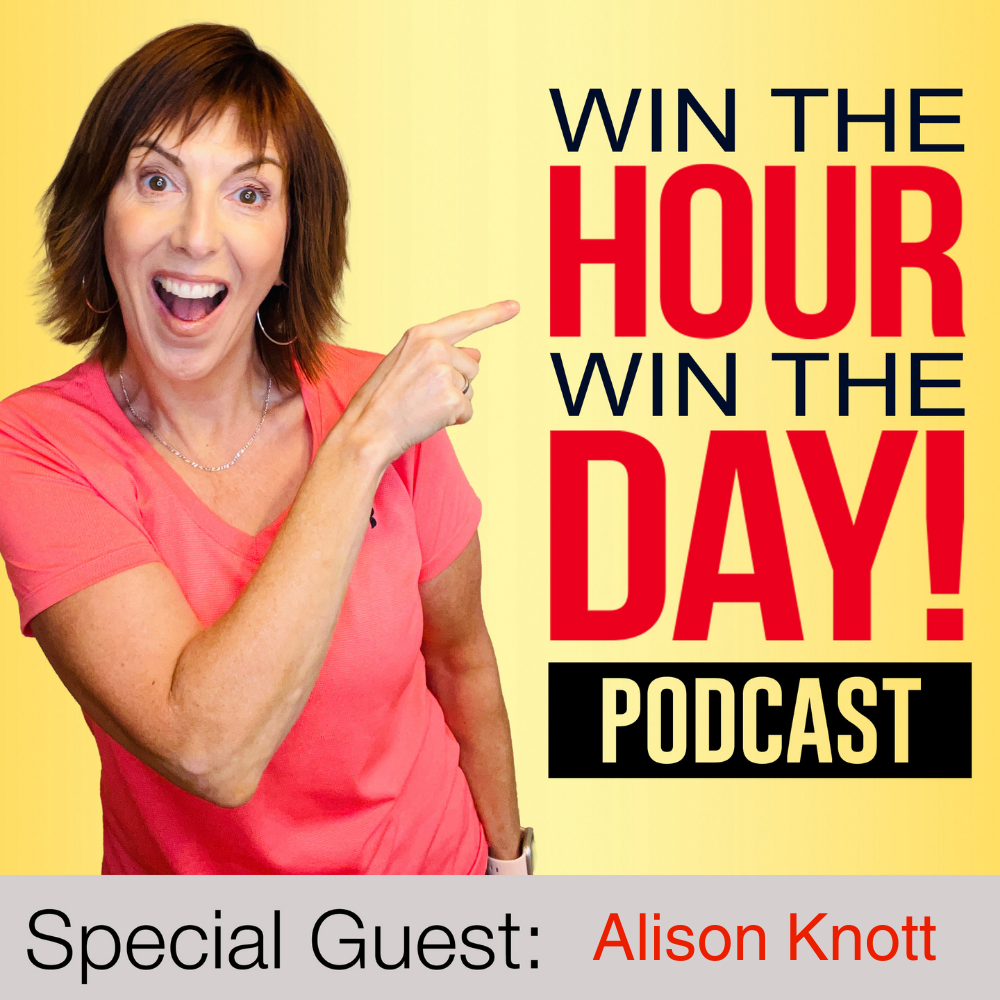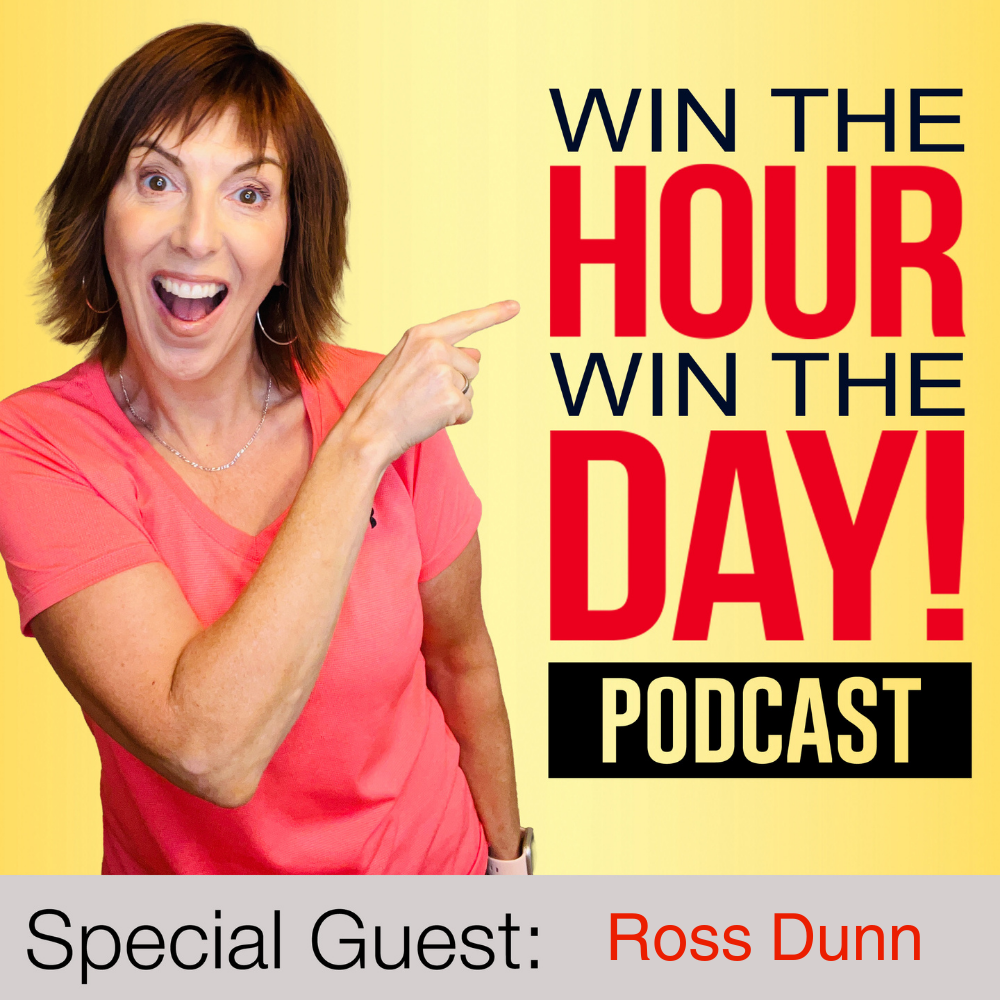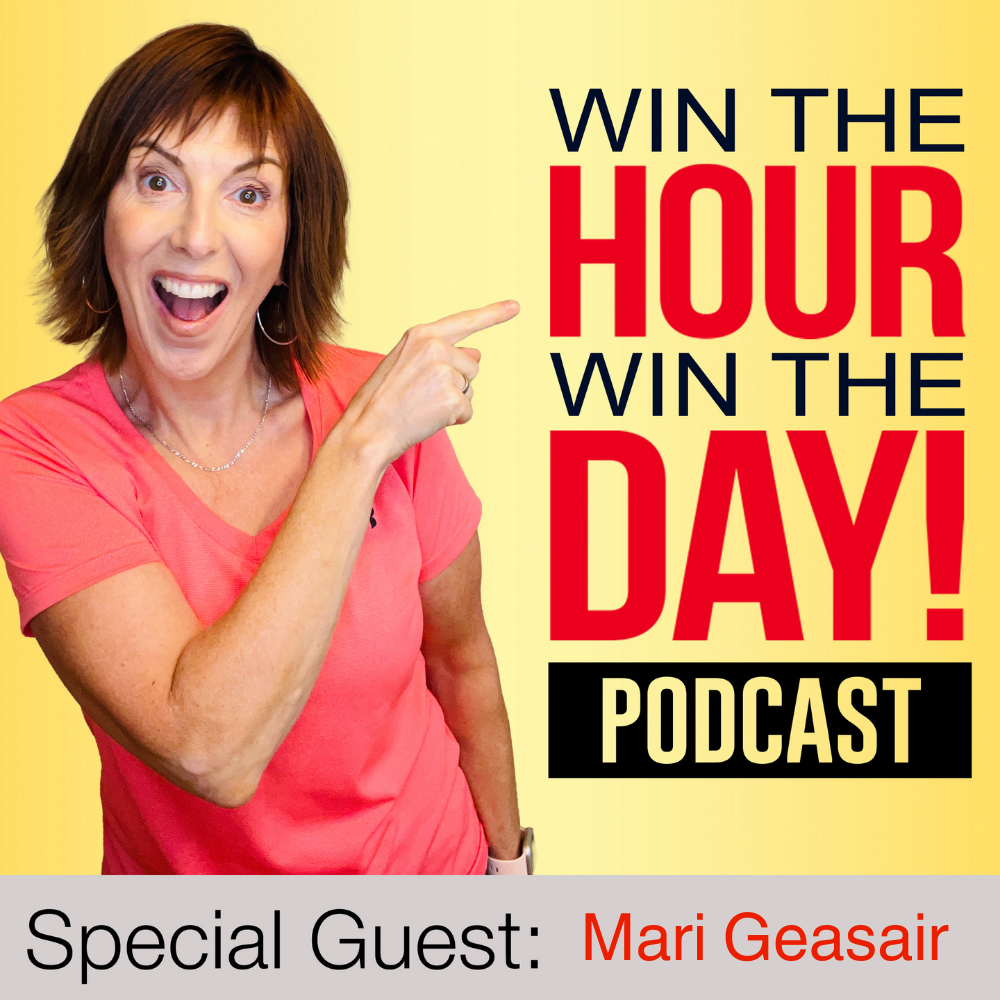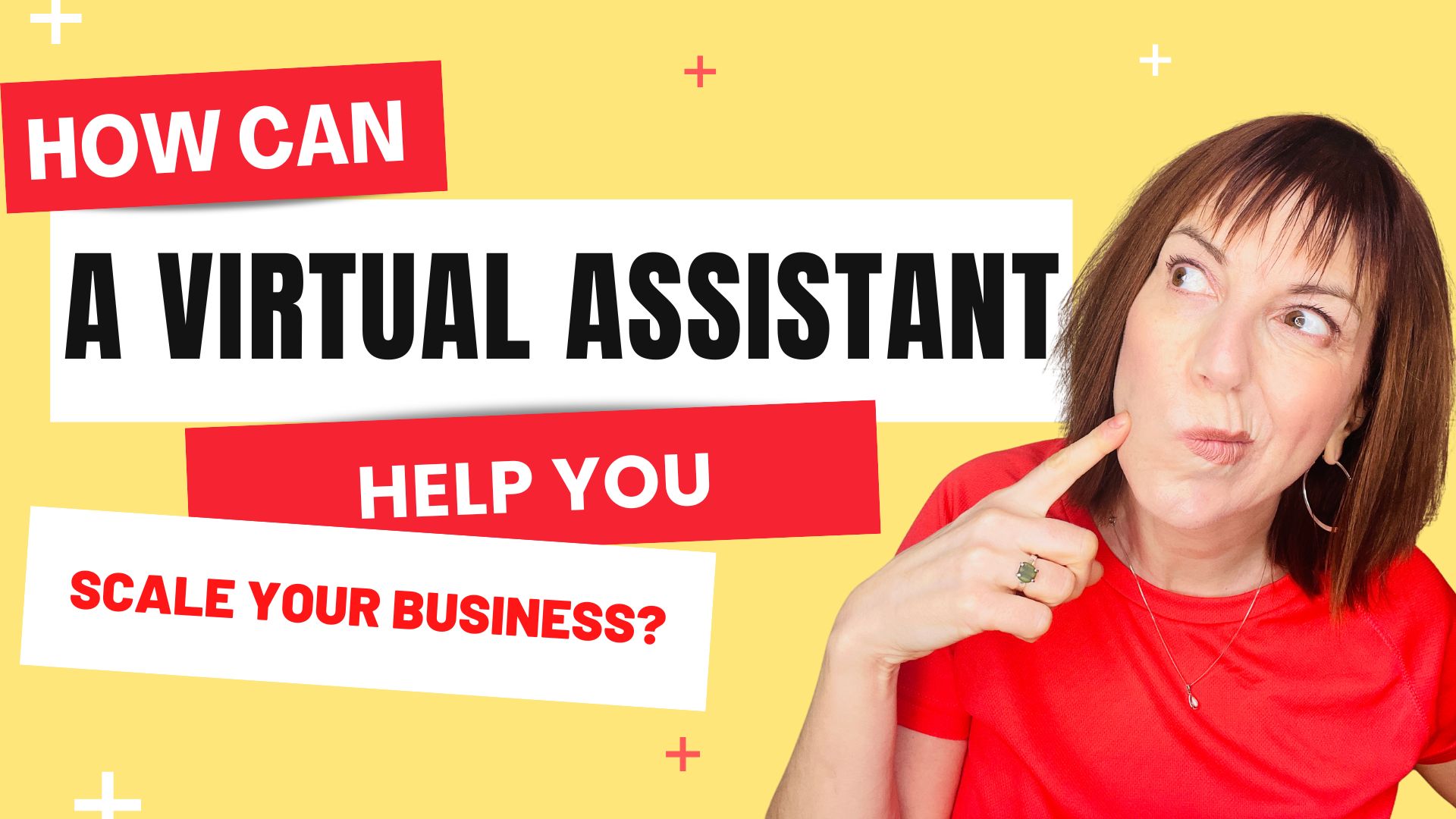Episode Summary
Jane Tabachnick gives us the real deal on media and PR (public relations). Listen in as Jane tells entrepreneurs how to break away from the noise and get your business noticed!
Learn:
-how to find the media that can help your business
-the secret to pitching the media
-why this can be your secret weapon
And so much more!!!
Join The Community: https://www.facebook.com/groups/WinTheHourWinTheDay/
Win The Hour, Win The Day! www.winthehourwintheday.com
Podcast: Win The Hour, Win The Day Podcast
Facebook: https://www.facebook.com/winthehourwintheday/
LinkedIn: https://www.linkedin.com/company/win-the-hour-win-the-day-podcast
You can find Jane Tabachnick at:
Website: https://janetabachnick.com/
Facebook: https://www.facebook.com/jmtabachnick/
Email: jmtonline@yahoo.com
LinkedIn: linkedin.com/in/janetabachnick
Masterclass: Working Hard Sucks And It’s Costing You Money!
https://winthehourwintheday.com/working-hard-sucks-and-its-costing-you-money-masterclass
Win The Hour Win The Day
https://winthehourwintheday.com
Check out the Outsourcing Playbook For Busy Entrepreneurs here: https://winthehourwintheday.com/outsourcing-playbook
Jane Tabachnick Transcription
[00:00:03]Kris Ward: Okay. So Jane Tabachnick?
[00:00:08]Tabachnick:Tabachnick.
[00:00:09]Kris Ward:Tabachnick. Okay. Is that right? Tabach… Okay. Got it. Great. So recorded, use ‘Timer’ sent my money.
[00:00:32] Yup. Okay. So my audience have been in business usually at least five years service-based entrepreneurs. I do, promise at some point to interrupt you because we want it to be conversational. I try when I can to put up my finger, but that does, I think, you know, better doesn’t mean say, okay, go ahead. It means like I’m going to jump in because mostly what I want to do is unpack your brilliance.
[00:00:55] I want to like, okay, hold on. You just said something really profound. But sometimes I’ll put my finger at people saying yes, and like, no, this is to help you. And I tell like every second person that, cause I think it’s obvious, but then the ones I don’t tell they go, sorry, go ahead. I’m like, all right.
[00:01:14] You know, kind of reminds me, one time. I said to my husband, when you’re ready to go give me a cue. Right? We’re at my family’s house. And he walked across the room and grabbed my hand and squeezed it. And they all looked at me. I’m like, that wasn’t very good. I was looking for.
[00:01:31]Jane Tabachnick: Like this or something. Yeah.
[00:01:32]Kris Ward: Yeah. Not like we need to get out of here. Ding dong. Okay. Hold on one sec. Almost. I almost didn’t have my view here. Okay. There we go. Forgot me. Okay. We all fixed her hair. Get her boobs out of the shot. They never help. Okay.
[00:01:56] Okay. Tabachnick, Tabachnick okay. Or have you just given up there’s that option too? It’s good. Yes.
START…
[00:02:12] Hello everyone. And welcome to another episode of Win the Hour, Win the Day Podcast. I am your host, Kris Ward, and I am really excited about today’s guest. I know I say that all the time, guys, but you have to tell me, you have to give me credit. I think we have great guests. All right, Jane Tabachnick is in the house and she’s going to talk to us about PR, but what she’s going to talk to us really is about how to get free press and really, you know, for us.
[00:02:38] You know, mission-driven entrepreneurs, coaches, consultants, authors, any, you know, any of us guys out there. This helps us become visible and create authority positioning ourselves as a thought leader. Now, Jane is an award winning content and publicity strategist, and mentor. So Jane, we’re excited to have you, welcome to the show.
[00:03:00]Jane Tabachnick: Thanks Kris. I’m so excited to be here.
[00:03:04]Kris Ward: Well, you can’t be more excited than me cause Jane, you know what? I can just, you just deliver. I can, any of our little interactions, you show up and then some, so let’s start with, you know, just start with the basics, understanding what PR is, how can we get it for free and why is it going to benefit us?
[00:03:21]Jane Tabachnick: Okay. So what PR is, it stands for ‘public relations’ and it’s basically the messaging that you have with your audience and stakeholders. So it can be your partners, your prospects and clients, as well as the community. But what it really is, is being spoken about in the media and on social media. And what that does for us is so valuable because there’s so much noise out there.
[00:03:49] We’re bombarded with messages all day long on every platform and everywhere we go. So to stand out above the noise, you need to get seen, you need visibility, but you also need third-party credibility because when you put out a message yourself, whether it’s your newsletter or a post, and you say, where are the greatest of our services?
[00:04:11] The greatest people are skeptical. It’s kind of like an advertisement. They don’t trust it as much. Right. So what I like to say is no one cares what you say about you. And I don’t mean that in a bad way. Yes. If you have an engaged following, they care and they’re engaged, but basically it’s just, you’re adding to the noise. And there’s a certain level of skepticism with people who aren’t already your total raving fans.
[00:04:38]Kris Ward: Yeah. Let me jump in there for a second. I had a PR person say this to me once and it really resonated with me. She said, you know what? Being in business is not enough. Staying in business is not enough. And I know when I wrote my book, win the hour, win the day, my gosh.
[00:04:49] I thought there should be like stop traffic. There should be a parade of my honor. Right. And because I, it was such a momentous accomplishment for me. And I did get a lot of people that told me the way I laid out the book. It was a very different approach. It was really refreshing. I got a lot of really positive feedback on it.
[00:05:07] So then I felt like pitching to people when I wanted to be on their podcast or I was looking for, you know, PR like, no. This is a really good book everyone’s telling me. And it’s like, yeah. Okay. Get in mine. Right. It’s like prisons are filled with innocent people, right? So although that’s a delicate subject, maybe that wasn’t a good example in this current model, there really are.
[00:05:27] Okay. Scrap that example, let’s move on. But the point is just saying, it’s good. You have to have social proof.
[00:05:36]Jane Tabachnick: Yes. Exactly. So what is social proof? Social proof is being featured in the media. It’s also having people commenting, liking, and sharing your content. So why is it valuable? You know, if you think about, if you were trying to figure out what restaurant to go to on Saturday night, What’s the first thing you do, you ask a few friends, you ask online, or you go and look at reviews like Yelp or capital advisor, TripAdvisor, one of those.
[00:06:03] So that’s the social proof, third-party credibility. And the media provides that for people because they’ve selected you. They’re probably 30 other people or more who do what you do, but they’ve decided to write about your feature use. So that means that you are credible, the media will vet you. They will check you out and make sure that you’re the real deal.
[00:06:26] And so they’ve done that heavy lifting for the audience. And even though they’re not endorsing you, it is like they’re giving you a five star review because they featured you and wrote about you. So it automatically creates an instant expert positioning, some know, like, and trust. And it’s like, like a warm referral. So it helps pre-sell people on you, which is a really wonderful thing.
[00:06:52]Kris Ward: Yeah. And I know for me, even when I have, when I’m doing my intro meeting, to be on the show, and one of the things I ask people is to say, okay, so why would I have you on the show compared to all your competitors? And I mean that in a nice way, like, okay, tell me what your angle is, what you think the rest of your industry is misunderstanding or missing.
[00:07:12] Why, what is your story? What’s, why are we going to put you to the forefront of anybody else in your industry? And I mean, we’re talking a little show here and just me and my ambitions, clearly somebody who, you know, has some real platform as far as, you know, publication of some sort of with an even bigger audience, they’re going to be vetting it more.
[00:07:32] But that really is what they’re doing is they’re putting a spotlight on you compared to anyone else doing what you do. So it does give a lot of social proof. So it really has a lot of validity when people see that.
[00:07:44]Jane Tabachnick: It does. And it gives you a lot of free exposure to an audience that you may never have been in front of before.
[00:07:50] So that’s incredibly valuable. The other thing about it, I just lost my, I had an idea of, bear with me a second.
[00:08:00]Kris Ward: Well, while you’re thinking about that, why don’t you tell us, how do we start with getting free PR.
[00:08:06]Jane Tabachnick: Yeah. So the thing to do first is to know who your audience is. I, this sounds silly, but really know who’s your audience and where do they spend time?
[00:08:16] What publications do they read? What podcasts do they listen to? What online platforms do they go to? And what formats do they like? I’m not saying every member of your audience is going to. You know, short forum, podcasts, and YouTube, there may be a mix, but there will probably be some general consensus.
[00:08:38] They may be more of a LinkedIn audience than a tic-tac audience. So that’s important to know. And then what are the publications? Or publications platforms, et cetera, that are of interest to them. And who writes about your topic, who speaks about your topic? Who’s the on-air newscaster who might be talking about your topic.
[00:08:58] So this is really important to know, because you may think I’ve got a great story. So if I pitched the media, just because they’re in the media, they’ll want to write about it, but that’s not how it works.
[00:09:10]Kris Ward: Right, right. That’s a good point. Cause you tend to think like, oh, like whatever business, the local, whatever, even virtually the local TV station, but that may be more geared towards young parents or whatever.
[00:09:23] So where do we, once we know. Let’s not assume we have to be careful guys. We know that our message is not for everyone. We have to be very specific and niche about that when we do that, what step one and two getting free PR.
[00:09:37]Jane Tabachnick:Yeah. So you can certainly reach out and pitch the media once you have all that figured out.
[00:09:42] But the easiest way, really, there are two easy ways. So one is to build relationships with the media. They are very social. Twitter is a great platform for that. LinkedIn can be, not to pitch them so much, but read their posts. Comment, like and share. And this is really important for a few reasons. It gets you on their radar.
[00:10:04] Your name will become familiar to them. But the other reason it’s really important that I think a lot of people may not be aware of is that a lot more of the media are freelance. So it’s really important for them to get the visibility for their own work. Just like you need it. They need it to get their next gig, to stay employed, to keep being able to write about you.
[00:10:25] So by sharing and helping them be seen, you’re helping keep them employed so they can then bring opportunities to you. So what’d you say. So once you get on their radar, you may even start to have a conversation with them. Sometimes they’ll reach out and say, thanks. I noticed you’ve been sharing.
[00:10:42] What do you do? And this has happened for some of my students in my magnify your message program. This is something that we encourage them to do, teach them how to do. And it’s simple takes minutes a day. You’re already on these platforms. So why not do this? And some magical things happen. A few of them without even having an agenda, they weren’t pitching or looking to pitch, got invited onto some top podcast just by commenting, liking, sharing.
[00:11:11]Kris Ward: So let me jump in here. So, but who are they? So you say, well, the media, so I’ll go on Twitter. I don’t scroll to look for them. So where do I know that? Hey, this is a good place. I don’t know where to start with that.
[00:11:24]Jane Tabachnick: Okay. So you can, it’s a really easy one. You can reverse engineer someone, you consider your competition.
[00:11:31] So if they’re in the media, there’s a good chance that if they’re a close competitor or they do something similar, then yeah. They’re going after the same audience as you do, their ideal prospects are probably at least some segment of your ideal prospect. So where they’ve been featured may be a great outlet for you.
[00:11:51] Now, if they were just written about last week, there’s a good chance the media is not going to write about the same topic the following week. So you may need to wait a little while before pitching them on that, unless you’ve got such a great different angle, that it would seem like a really good addition or continuation of that piece.
[00:12:09] So the other way is that you can actually use Google. Google is the best tool, where to do a Google search for journalists on Twitter. You’ll find lists. I know. Amazing, right? Or…
[00:12:23]Kris Ward: Hold on everybody. Write this down. First of all, this must say, I don’t know if you all been using it, but it’s Google, GOOGLE. Okay. Dot com. Write that one down. Okay. And then go journalists on Twitter. Oh my gosh.
[00:12:37]Jane Tabachnick: Here’s the thing about Google. It doesn’t have to be sophisticated or a Boolean search or anything. Use natural language. What are you looking for? Just say, you know, who are TV producers on LinkedIn, see what comes up.
[00:12:51] You will find some lists and then you can see who they’re connected to, who they follow, who they comment on. So it could take a little bit of work, but if you have some fun with it, And you don’t need a huge list. This is the other thing. You don’t need a list of thousands of journalists. If you can find 10 ideal journalists who cover your topic or podcast, producers, whoever, whatever medium we’re talking about then, and just focus on building that relationship and eventually pitching them or having a conversation with them, you will have a lot more success.
[00:13:22]And when you think about it for a second, let’s go back to the definition. What is PR public relations? It’s about relationships.
[00:13:33]Kris Ward: Oh, my gosh, I can’t even hear you anymore. I’m still over at the fact that how dumb I was. Google yeah, just Google it. You know, I always think they’re hidden and I don’t know what the name is.
[00:13:42] And you know, it’s all this big, like how do I know Sarah Jones is this big, important person in the PR world or a TV broadcaster. It’s like, oh, well you can Google it and find this stuff out. You silly person. I was going to write a book at one point. And the title was, cause one day I called my mom and I was asked, you know, you call your mother about random
[00:14:02] irrelevant pieces of information. She’s supposed to know all this stuff. Right. So I called and asked her a question. She said, I don’t know, Google it. And I was like, oh, all right. So I like the title was going to be ‘Google replaced my mom’, right. From a marketing perspective, I was like, what do you mean?
[00:14:19] You don’t know? She goes, Google it. And I’m like, all right, this relationship is really petering out here. Okay. So Google it. Hello? Yeah. Yeah. Continue then, continue with your wisdom. Now I wouldn’t even know to ask that question.
[00:14:32]Jane Tabachnick: Yeah. So now you can, you can also buy a list. You can have someone pull a list for you, so you can do this on five, or you can go to Upwork or you can see if, you know, Media professionals, you know, like publicist, PR people in your network and ask them if that’s a service that they would provide for you.
[00:14:50] So that is another option. So the next free way to get publicity is using what I call a PR matchmaking service, people listening may know them. One of them, the most popular one, is called HARO or ‘ help a reporter out’. Yeah. So what that is is basically a listserv. You sign up for free and get an email three times a day and it will give you opportunities.
[00:15:17] Journalists. Who are already working on a story who need your expertise, they need a quote, they need a case study. They need a statistic, they need an interview and you can just reply.
[00:15:32]Kris Ward: I was all gone ablazing when I first started HARO. It’s H. A. R. O ‘help a reporter out’ and I was all enthusiastic and I did it in the beginning and I had some success.
[00:15:41] And then it seemed to Peter out. Yeah. And it seemed like a lot of work to write up a little thing that they were looking for. And then you wouldn’t hear back from them. So is it just hit and miss, or maybe I wasn’t doing as good a job later, or what’s your position on that?
[00:15:55]Jane Tabachnick: Yeah. Great question. So it is hit and miss.
[00:15:59] So some weeks you may find more opportunities and others. If you were to simplify your process, it wouldn’t take quite as long. And what I do is create a template that I just customized for each pitch. So the only thing that’s really changed because your social media links are the same, your phone numbers are still the same. Right?
[00:16:20]Kris Ward: Oh that part I don’t have a problem. Let’s say you’re asking for a particular question. Like, even I might see, like how do I outsource it to the new world or whatever? And so I had that answer but sometimes they want different parameters, but you’re right. I’m all about systems and toolkits. So I should just start, I have my PR kit already, so I should have my answers already, so, okay.
[00:16:38] Systematize that so that it’s less hard. Oh, that makes a good point. Okay. I was really thinking that each one, even though I know the answer when I’m on social media, often I copy and paste answers that are similar, but I guess. Their parameters seem so uniquely different. When they’re asking the question, I get confused when the answer is still going to be the same.
[00:16:58]Jane Tabachnick: Right. All right. Yes. Okay. Yeah. So, you know, look, let’s face it. Even if you hire an inexpensive high caliber PR firm to do the PR for you, you’re still going to need to give them the answers to the questions. So it doesn’t just automatically happen, you know? And it shouldn’t take too, too long. So HARO can be a great resource or others like it.
[00:17:21] And, you know, we actually just, if I, can I tell you about something new we’re doing? Sure. So we just launched a service called curated publicity, and we will do the heavy lifting with HARO and about seven other services like that to find you publicity opportunities. It is a ‘fee service’, not a free service.
[00:17:43]Kris Ward: Bite, your tongue.It’s a ‘fee service’, people. She’s not a community center. So yes, she has a service. Okay.
[00:17:50]Jane Tabachnick: Right. But HARO and those kinds of outlets can be really useful for getting publicity. Are they all great opportunities? Not necessarily and I think the standards with HARO have gone down a little bit.
I see things that are less, there are a lot more anonymous outlets, which doesn’t mean they’re bad. So just to let people know, sometimes a big outlet will list their question as anonymous because otherwise they get flooded with queries responses. If they said, Hey, it’s from Forbes, they might get 200 responses.
[00:18:24] Whereas if they say anonymous, maybe they only get 25. So, but some of those are anonymous. They’re just, they’re not really great. So it’s always good to have the outlet listed so you can have a look and see if you feel like it’s a fit or it’s worth your time. But if you think about it, do you have your template created?
[00:18:41] And you’re just answering the question and sending it out. If you were to do that once a day, three days a week, then, you know, that’s. 1520 more times a month. I’m not doing the math right. 12 more times a month that you may be getting publicity that you otherwise wouldn’t get. So,
[00:19:00]Kris Ward: Okay. So we got HARO, we got some free stuff. We gotta Google it. And also you talked about how to use social media to get free press.
[00:19:09]Jane Tabachnick: Yeah. So in addition to building those relationships with journalists, there are actually some queries that get put out over Twitter. So you can subscribe, one is called journo request, J O U R N O request. And you can search by that hashtag, there are a couple like that, and there are queries that go out.
They’re not all US-based. So one of them tends to be more United Kingdom or UK based, but you know, you never know.
[00:19:41]Kris Ward: I think what you’re now sounds naive. You know, we hear about one thing. So I knew about HARO. So then I think HARO is the thing, that’s it. But now as we’re talking, I realize, oh, HARO is like, they’re not the only one in their industry.
[00:19:56] They can’t be nobody else’s. So what I’m realizing is now there’s all these other places as you speak of throwing these names around that, they also are looking all. Like, I know people keep telling us that, and I know that I need guests for the show they need, they need to have subject matters. They need all that.
[00:20:14] And it’s much easier for them if it’s spoonfed to them. Of course it is. But when you’re the one looking to get PR for your business, you think, oh no. How will I ever get picked and stuff? So it’s just a matter of having all these toolboxes open with these different options and just keep nurturing them a little bit.
[00:20:30]Jane Tabachnick: Exactly. And it can take just a few minutes a day. It doesn’t have to become, and shouldn’t become a full-time thing for you. You have a business to run and clients to serve most likely. So just dedicate a certain amount of time and be in the game because if you’re not in the game, you’re not going to get pressed.
[00:20:48] And I just want to say this because it may not be obvious, people who are in the press, people you see who are on stages on podcasts, or, you know, in summits are not more lucky than you are. They’re not smarter, they’re not prettier or more handsome. They don’t have some magic secret sauce that they are pitching, or they have someone pitching themselves to create these opportunities.
[00:21:12] Yes. There’s a teeny, teeny, teeny bit of synchronicity or luck. But I firmly believe that luck is when preparation meets opportunity and being in the game. So if you just send one more pitch a week, then you’re sending now by the end of the year, that’s 52 pitches. And if you only succeed with, you know, 20%, that’s 10 opportunities you’ve generated over the year.
[00:21:37]Kris Ward: A hundred percent. Oh, like, look, I throw numbers like we’re mathematicians. Okay. So then. You talk about how do you leverage that when, you know, when you do get that publicity, how do you leverage it for a greater return on your investment?
[00:21:52]Jane Tabachnick: Yeah. I love this question because this is a mistake a lot of people make, so it’s really great to get pressed.
[00:22:00] So the thing though, is that because of that noise that I mentioned, all the messages were bombarded with. There’s a good chance that people, everyone that you know, will not see that press, they may not have read the New York times that day, that Twitter or Facebook algorithm or LinkedIn algorithm may have just blasted by or not even shared it with them.
[00:22:21] So your best bet is to share it. On social media, you can add it to your email bio or your social profile bios. You could add it to your proposals for third-party credibility. ‘Hey, we are as seen in the New York times’. What’s more credible than that. Right? So add it to your new pitches, exactly.
[00:22:45] And create a media room on your website. So this can simply be a page. It doesn’t have to be any fancy software or anything like that, but on a page that’s easily, find-able like from your top navigation bar, not what I call a scavenger hunt to find it right. Because the media, when they go to vet, you will look at that page.
[00:23:09] And so will your clients just like your about page as popular, your media page is popular and it builds more third-party credibility and trust.
[00:23:19]Kris Ward: You know what I was thinking, like, as you’re going through this, I’m like, I pride myself on understanding a certain amount of this. So you’re talking, I’m like, oh yeah.
[00:23:28] So on our, you know, when we do a sales funnel for something at the bottom, it’s got different places, Yahoo news or different places I was in. Boom, boom, boom, boom. Right. And, but now I just realized my pitch when I send it out to like HARO and stuff, it’s got my bio, but I didn’t list all the places that I’ve had articles or things like that.
[00:23:46] Like I just did the general bio, like, and I’d been on a lot of podcasts and whatever, but I didn’t boom, boom. And give the link. So I, man, there’s sometimes you just miss the common sense. You can’t see the picture when you’re in the frame. So even that was just like, oh, how did I miss that? It was so obvious, right?
[00:24:06]Jane Tabachnick: And you don’t need to give them every place you’ve been featured, but give them one or two of the recognizable ones, because that creates that positive association and elevates you to associate with the brand of that wreck, you know, stature.
[00:24:21]Kris Ward: It’s just really changing how you see the world and the gap between us and them and the PR world, you know, is just not as big as we think.
[00:24:30] We’re not like my job. You know, everything is so sensitive. Now it’s gonna say, my job is not to get on Ellen. You know what? Ellen’s having a hard time too. So there’s nothing you can say any more than just generically, easy to digest without pre-qualifying it. So what the point is, I know in the beginning, when I thought a PR, I thought it was something that, you know, You had to already have the status to get the PR, like when you see Brad Pitt or something, come on a TV show.
[00:24:56] Oh, he had this status and now he’s promoting his latest adventure, but really, you know, that’s not what we need or want. Anyhow, that’s not our ambition. It’s not our audience. So understanding that we, there is a much smaller gap between us and PR that would serve us as entrepreneurs. Then we understand with just, you know, doing a little bit of Googling.
[00:25:18]Jane Tabachnick: Yes. So local press can be great and it can be easier to get, because if you think about it, your local media outlets have to write about local businesses and local individuals. And they’re a lot more receptive than if you’re trying to pitch a national or international. Yeah, outlet. And that can be just as valuable.
[00:25:39] And the other thing about it, I like to mention, so I live in a bedroom community to New York city and there are a lot of New York Times people who live here, there are some television folks. If I named a few, you would know who they are. And so being written about in my local paper means there’s a really good chance that someone who can really put you on a national or international stage is going to see it.
[00:26:03] So don’t discount your local papers. The other thing about it is some of them are syndicated. And what that means is an article that appears in one paper ends up in 20 or 30 other papers because they have a distribution arrangement called syndication. Right. So unless something of you, whether it involves pornography or something political, you’re not aligned within, it’s probably a good media opportunity.
[00:26:32]Kris Ward: Perfect. Well, Jane, this has been enlightening on so many levels. Mostly it just opened up how, like common sense really gets constantly lost at least in my brain. Alright Jane, where can people find more of your brilliance?
[00:26:46]Jane Tabachnick: Yeah. So if you go to simplygoodpress.com, you can connect with me. My social links are there.
My blog with a lot of content is there and I’ve got a visibility assessment. So if you want to have fun, see how you’re doing with your visibility and see what opportunities there are for you to get more visibility. Take it. It takes a couple minutes. It’s fun. It’s not a test, so we’re not grading you. So don’t get, some people get, oh my God, I’m going to be terrible.
[00:27:16] I’m going to fail. There’s no failure here. It’s just seeing where you are. See what else you could be doing and have fun with it?
[00:27:23]Kris Ward: Well, that sounds like a lot of fun, Jane. You’ve been spectacular. Thank you for opening my eyes and just delivering the constant, you know, high caliber of content that you always do. Thanks so much.
[00:27:34]Jane Tabachnick: Thanks for having me, Kris.
[00:27:36]Kris Ward: And everyone else, we’ll see you in the next episode.
END…
Perfect. That was spectacular. Jane, did you have fun? Thank you. I did. Thank you so much. I love talking about this. I never did it. Oh my gosh. So there’s a couple of things you said I’m like I should have had that can, and I tell you that the Google thing is so funny.
[00:27:56] I teach a class at the fashion Institute and sometimes students ask me a question and I’m like, you’re a digital citizen. You’re like, you know, I mean, it’s adult ed. They’re not all like, you know, 19 year old colleges, but it’s. Did you think to Google it? I mean, for F sake, you know, but I guess you think it’s this hidden.
[00:28:15] Thing, you know what I mean? Like it’s just underground. I don’t know. I don’t mean PR I mean like anything, like basically when people ask you, you’re like, really? Yeah, no, no, I grew, but that’s the thing is I Google pretty much everything. Right. And how come I didn’t think to Google that. I don’t know, man.
[00:28:32] Oh, man. I think because you’re right. It seems like this mystique and maybe it’s like proprietary professional information. You’d have to pay for it, but you know, there’s a lot of good info out there. Yeah. Yeah, I know. And then I, you know, when you’re like proud of yourself, so you’re saying, oh, put it on your website.
[00:28:51] Check. I do that, put it here, check. And then you’re like, put it in. I’m like, oh, I didn’t put it in. Yeah. It was feeling really proud of myself there for a minute. Oh, my admin say, you’re doing great. You know, we can all step it up somehow some point for sure. Okay. What time is it? When are you in. I’m in, uh, I’m in New York city area, so Eastern.
[00:29:14] Okay, awesome. Um, so if you were looking to do a strategy call would Monday at noon work for you? Just one second, please. I’m going to this coming Monday. Yes. Yes. Perfect. It’s clear. Okay. Let’s do that. Normally. I don’t take appointments on Monday, but I have a special Monday coming up, so I’m going to put you in there.
[00:29:37] Okay. Thank you. This is going to be fun. I’ve just changed the date because I’m a lunatic. Why did I do that? Cause I’m doing it on my phone. 12. Okay. Now. Hold on one second. I’m just going to do this while you’re on the call. So you get the zoom link and I make sure I get everything right. So what I would say too is I’m doing this.
[00:30:03] Is I want, do you have a iPhone? What kind of phone do you have? I have an Android and I have an iPhone or whatever phone you have put the, usually have a note section in there. So what I would say is in that note section, so often when you’ve got stuff going on, you kind of learn, you don’t realize you do this, but subconsciously you start to suppress ideas.
[00:30:25] Like, oh, I can’t even think of that right now because it’ll just get me all worked up and I’m okay. I can’t, I don’t have the time for that right now. So what I want you to do is start thinking about any ideas or ambitions or things you wanted to get to. And once you start making a list just as they come into your head over the weekend, it will start to get momentum.
[00:30:45] And there’ll be other things you’re like, oh yeah, I always wanted to do that, but you just stopped thinking about it. So just let that open that flood gate. And just let it open up and just start making a little list and adding to it as you go and bring that list. Now, is this for business or either mostly, mostly for business, but the other stuff you want to do, if you have more time, if you’re making more money in less time and more freedom on your schedule, you’ll have time to do that other stuff.
[00:31:14] Okay. Does that going to be a long list? That’s good. Those are our favorites. I don’t know about you, but this last year I had more time at home and got less done. I, I cannot explain it, but I think I’m not alone. That did not happen to me. But for you, the reason is that’s my zone of genius. So that’s what I do.
[00:31:37] Right. So hold on one second. I’m just getting your email address, marketing virtual. So is that it? That’s fine. Okay. I’m just trying to, to find one that pulls up. Um, no, that didn’t happen to me, but that’s why I teach it. If it happened to me, you know, it’s what I teach. We’d have a problem, right. This, you know what?
[00:31:58] This one is better. Why don’t we switch to this switch? I put it sorry into the chat. That’s my main email. Yeah, that’s my main, the other one. It, we use for podcasts bookings because it’s myself, my calendar, but I, I hate Gmail with a password. Okay. Um, what do you instead? I have, it’s like outlook, but it’s called a Thunderbird.
[00:32:23] Oh, gotcha. Yeah. T a B.
[00:32:31] Okay. Jane T a B a C H a S K, going to share this now. Okay, forgive me. I’m sending it to you from Google calendar. So make sure you got it.
[00:32:48] She’d get an email. Well, it worked from, from, um, work for me. I’m sending it to my, from my calendar. Okay.
[00:33:01] I haven’t gotten it yet.
[00:33:09] Well, I have it on the calendar. Okay, perfect. Oh then let me do this. Let me just, uh, oh, here it is. I got it. I got zoom link is in there as well. Okay, cool. You got the zoom link. Do you want me to email you the zoom link separately? Are you old? No, no, no. Okay. Why do I want a child? No, don’t treat me like a child and to say, you know, I, I’m not a creature of habit.
[00:33:31] I’m not about processes, but my calendar, like as soon as something I’m in the process of setting it, like just now. It gets up because otherwise, you know, yeah, yeah. Anything could happen. So a hundred percent. So just start building that list, just let your brain open up, let the fresh air come in and enjoy it and be like, oh, I always wanted to get to this.
[00:33:52] I never time to this, but I wanted to do this, but I didn’t want to work 50 hours a week. I wanted to just start building that, let it flow and just keep track of it and bring it to Monday. Okay. I’m looking forward to it, Jane. Thanks so much. Thank you. All right. Good afternoon. Bye. Thank you. Okay.
——————————————————————————–


